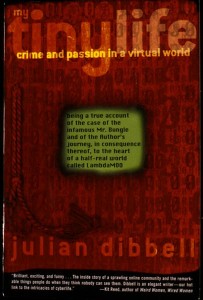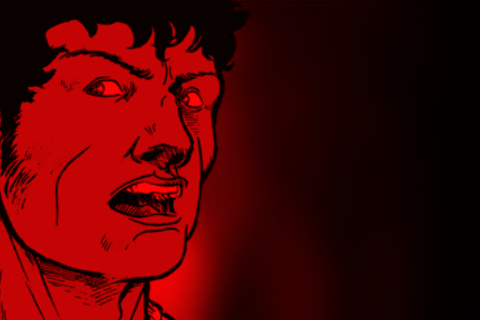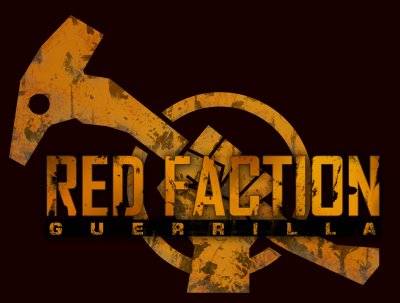Mar
14
2010
 Corvus Elrod, game designer and analyst, joins us for our first recording of 2010 in Episode 028. We talk about the dynamics of tabletop RPGs and board games in comparison to the roles inhabited by players of video games as well as the work Corvus is doing to expand the possibilities of tabletop RPGs with the Honeycomb Engine. Corvus leads us to ponder the emergence of narrative from interpersonal experience when interpreted through game mechanics and the restrictions that traditional applications of these mechanics imply.
Corvus Elrod, game designer and analyst, joins us for our first recording of 2010 in Episode 028. We talk about the dynamics of tabletop RPGs and board games in comparison to the roles inhabited by players of video games as well as the work Corvus is doing to expand the possibilities of tabletop RPGs with the Honeycomb Engine. Corvus leads us to ponder the emergence of narrative from interpersonal experience when interpreted through game mechanics and the restrictions that traditional applications of these mechanics imply.
1 comment
Nov
25
2009

For our 3rd Book Club interview, Episode 027, we’re joined by the author of My Tiny Life, Julian Dibbell. Julian has been writing about technology and game worlds since the early 1990s, and pioneered a form of digital ethnography that has influenced a generation of game writers and journalists. We discussed the early days of online worlds, griefers, meme theory and much more. We also pose tough questions to Julian supplied by McKenzie Wark, Leigh Alexander, and Netwurker Mez.
no comments | posted in podcasts
Oct
16
2009
 As the FWR crew attends the &Now conference in Buffalo, NY, we’re pleased to release Episode 026 featuring an interview with Ian Bogost. Ian is a writer, developer, and professor and joins us for a conversation on his recent book with previous guest Nick Montfort, Racing the Beam. We also get into his creations at Persuasive Games LLC, as well as his book, Persuasive Games: The Expressive Power of Videogames. We talk about the creative potential of the Atari VCS long after its commercial life cycle, Ian’s experiences teaching games, and the recent closing of Water Cooler Games. Enjoy the latest in our series of interviews, and look for audio from the conference as well as our Book Club episode with Julian Dibbell soon.
As the FWR crew attends the &Now conference in Buffalo, NY, we’re pleased to release Episode 026 featuring an interview with Ian Bogost. Ian is a writer, developer, and professor and joins us for a conversation on his recent book with previous guest Nick Montfort, Racing the Beam. We also get into his creations at Persuasive Games LLC, as well as his book, Persuasive Games: The Expressive Power of Videogames. We talk about the creative potential of the Atari VCS long after its commercial life cycle, Ian’s experiences teaching games, and the recent closing of Water Cooler Games. Enjoy the latest in our series of interviews, and look for audio from the conference as well as our Book Club episode with Julian Dibbell soon.
no comments | posted in podcasts
Oct
13
2009

We are very excited to announce that we will be joined for our Book Club episode by Mr. Julian Dibbell, author of My Tiny Life, one of the first works to explore the social dynamics of online worlds, game-oriented and otherwise. We will discuss the book as well as current topics of Mr. Dibbell’s interest (which may or may not include discussion of his book Play Money, Chinese gold farming, Scientology, or any number of other subjects).
If you have questions about My Tiny Life post them in the comments here or send them to @firstwallrebate on Twitter. We will address as many interesting questions as we can during the podcast. Get your questions posted or sent by October 20. We’ll record on that day and get it posted as soon as possible afterward.
My Tiny Life is available from LuLu.com as a purchase or free-to-download PDF. If you would like to get the paper experience without all the paper, then you could check out the Google Book Search version.
no comments | tags: book, Julian Dibbell, My Tiny Life | posted in announcements, book club
Sep
14
2009

We are joined for Episode 025 by Erik Loyer of Opertoon. The first Opertoon game, Ruben & Lullaby, was released earlier this year via the iTunes App Store and has received attention for its unique method of narrative delivery and implementation of interactive musical elements. We quiz Erik on the direction of digital narratives, control schemes and their emotional impact, and the potential for music games outside of the Guitar Hero model. Unlike Ruben & Lullaby, there is no possibility that we break up at the end of this episode, even though Shawn does end up shaking Trevor like a snow globe. Thanks to Erik for joining us and thanks for listening.
no comments | posted in podcasts
Aug
15
2009
 After a long summer break, FWR returns with Episode 024 and guest Sinan Kubba of the Big Red Potion podcast and TheGameReviews.com. We use Trevor’s recent trip to Las Vegas as a jumping off point for a conversation about the culture of gaming establishments, risk and reward systems, and the act of survival as part of an economic gamespace. We talk about the differences between European and North American gambling traditions as well as the portrayals of such games in artistic mediums. Thanks to Sinan for taking the time to join us, and thanks to you for listening.
After a long summer break, FWR returns with Episode 024 and guest Sinan Kubba of the Big Red Potion podcast and TheGameReviews.com. We use Trevor’s recent trip to Las Vegas as a jumping off point for a conversation about the culture of gaming establishments, risk and reward systems, and the act of survival as part of an economic gamespace. We talk about the differences between European and North American gambling traditions as well as the portrayals of such games in artistic mediums. Thanks to Sinan for taking the time to join us, and thanks to you for listening.
no comments | posted in podcasts
Jun
22
2009
 Revisiting some favorite themes, Episode 023 also sees us joined by J Goldberg, Community Manager at Volition. Having recently shipped Red Faction: Guerrilla, J sits down with us for a conversation on open world gaming and the significance of destructible environments (metaphorically as well as mechanically). We also take on fears of simulation and representation, shifting similarities between games and other artistic spaces, and player characters in fictional roles and their importance. Thanks to J, don’t forget about our book club, and enjoy.
Revisiting some favorite themes, Episode 023 also sees us joined by J Goldberg, Community Manager at Volition. Having recently shipped Red Faction: Guerrilla, J sits down with us for a conversation on open world gaming and the significance of destructible environments (metaphorically as well as mechanically). We also take on fears of simulation and representation, shifting similarities between games and other artistic spaces, and player characters in fictional roles and their importance. Thanks to J, don’t forget about our book club, and enjoy.
no comments | tags: art, narrative, politics, red faction guerrilla, video games | posted in podcasts
Jun
14
2009

Episode 022 finds us joined by artist and educator Stephanie Rothenberg for a conversation on the importance of play. Stephanie runs an online training simulator/spoof and a virtual jeans sweatshop, The School of Perpetual Training and Invisible Threads, respectively, allowing us to discuss everything from the effects of varying input methods to the exploitation of the gamer hive mind. We question the necessity of gadget fetishism and the receptivity of the gamer community to criticism, as well as definitions of “play” and “work” and a few things in between. Thanks to Stephanie for joining us, and thanks to you for listening.
no comments | posted in podcasts
Jun
5
2009
And this, friends (for you are truly a friend if you’re still reading this…), is part of the reason why venturing into that wasteland of conversation titled/trademarked When Will Video Games Have Their Citizen Kane Moment? is still largely a waste of time. For Orson Welles, making Kane wasn’t about exercising a studio’s intellectual property rights, but exorcising his personal political demons. Kane is a work of art perfectly and hermetically sealed within its historical moment, yet it’s an expression so precise, poisonous and personal that its angry energy still infects us, a white dwarf high-beaming us from light years away.

Like Virgil and Dante, Welles’s voice refused to be ignored (which has to be disappointing for Knight, probably. One should just be able to listen to what they want, right?) because of its arrogance, audacity and white-hot brilliance, and he himself suffered great injury for his inability to darken or cool it. (Adding insult to injury, Welles’s original negative of the film was lost in a fire at his Spanish villa in the 1970s.) Art endures, convulsive, twisting itself into the future.
Not unlike the film industry during Hollywood’s Golden Age, the video game industry has a pantheon of studio-beholden stars who make compelling work, but still work that is primarily (a lot of times only) produced to be consumed, not considered. And frequently the attempt to seriously consider these expressions is met with that familiar anti-intellectual ditty titled “Oh Let It Go Already, It’s Just A (insert medium here)!” As much as we might try to convince ourselves otherwise, we do not live an age of ideas or even an age of information. We are living in The Age Of [Anti-]Intellectual Property(TM).
And but so, Alexander’s final analysis in this, our Glorious Age Of [A-]I.P., is prudent and pragmatic. Things Are What They Are. Everything That Is Is What It Is. And That’s Okay.
I mean, Right?
You tell me.
2 comments | tags: art, literature, politics, video games | posted in blog posts
Jun
2
2009

In 1998 Julian Dibbell published My Tiny Life and altered the way we would think and write about videogames. His investigation into online worlds defined a new type of virtual ethnography, and has spawned volumes of discussion and debate. But beyond creating fodder for digital culture and game studies classrooms of the future, Dibbell’s book remains one of the most entertaining reads one can find. He covers the nerdy, the perverse, and the heartwrenching, and profoundly reminds us how much the imaginary stuff matters.
My Tiny Life is the story of Dibbell’s experiences as he tries to live his life in and around the virtual realities of early text-based Multi-User Dungeons (MUDs) and the people who made those spaces. These are not exactly games, although games take place within them. And they are not simulations, although simulations have been built inside them. These worlds are an in-between, existing both as corporate experiments and grassroots underground. Dibbell’s strength is how he binds together these and many more dichotomies, creating work that is both analytical and emotive, existing somewhere between anthropological study and personal memoir.
In 2008 Dibbell managed to do what most writers only dream of: He wrestled his book from the hands of his original publisher (who had let it go out of print) and gave his book to the masses by releasing it free (with a few caveats). This is fortunate for us because My Tiny Life is available in a variety of ways. Of course, there is a lot to be said for the dead-tree version, and Dibbell offers that medium via LuLu.com. Also available via LuLu is a free-to-download PDF version. If you would like to get the paper experience without all the paper, then you could check out the Google Book Search version.
We invite you to join us in reading, or re-reading, Julian Dibbell’s My Tiny Life over the next several weeks.
no comments | tags: book, Julian Dibbell, MOO, MUD | posted in book club
 Corvus Elrod, game designer and analyst, joins us for our first recording of 2010 in Episode 028. We talk about the dynamics of tabletop RPGs and board games in comparison to the roles inhabited by players of video games as well as the work Corvus is doing to expand the possibilities of tabletop RPGs with the Honeycomb Engine. Corvus leads us to ponder the emergence of narrative from interpersonal experience when interpreted through game mechanics and the restrictions that traditional applications of these mechanics imply.
Corvus Elrod, game designer and analyst, joins us for our first recording of 2010 in Episode 028. We talk about the dynamics of tabletop RPGs and board games in comparison to the roles inhabited by players of video games as well as the work Corvus is doing to expand the possibilities of tabletop RPGs with the Honeycomb Engine. Corvus leads us to ponder the emergence of narrative from interpersonal experience when interpreted through game mechanics and the restrictions that traditional applications of these mechanics imply.





Alexander has been posting and tweeting all week from the Electronic Entertainment Expo in Los Angeles. Among her impressive amount of info-relay is this column up over at GameSetWatch, in which she makes the argument that Electronic Arts’ upcoming video game Dante’s Inferno need not worry about trying too hard to adhere to its literary namesake. In describing the game as an “action title set in Hell,” Alexander asks a certainly appropriate rhetorical question: “Why not have fun with it?”
Fun is almost always the baseline value by which we evaluate something we might call a “video game” (tangentially: if you want to get really semantic about this term, check out the latest episode of Big Red Potion, where Sinan Kubba, Joseph DeLia, Eddie Inzauto and yours truly get into some interesting territory about what we might mean or assume when we use that particular word). By nature, we are creatures who prefer the warm fuzzy over the cold prickly, and activities which require us to focus for long stretches of time and draw more than summary conclusions about what we’ve experienced are made more difficult when we aren’t having a pleasant time doing them.
Games and fun might go well together like chocolate and peanut butter, but let’s be careful not to assume that these aren’t incredibly subjective things we’re talking about. And yes, I know all of this nit-pickery about terminology can get incredibly tedious and annoying, but these acts of definition are nevertheless important, because when we talk about games as a medium, we are essentially talking about how game designers communicate ideas through building artistic vehicles for those ideas, as well as how game players receive and react to those ideas. When we whittle these efforts down to whether a game is “fun” or not, a lot can get lost in the trimming.
Case in point: Dante’s Inferno. Alexander writes, “The Divine Comedy, after all, is largely a poem about two guys walking and talking, not exactly the core gameplay of an action game. In that way, the liberties the [design] team took were intended to create a stronger video game, a more reasonable priority for, well, a video game, than focusing on a strong epic poem adaptation.”
These “liberties,” Alexander reports, include depicting Dante as “a former Crusader armed with a giant scythe that looks like it’s made out of a monster’s spine,” who embarks upon “a vaguely risque subplot about rescuing Beatrice from the devil’s seduction.” Some of the obstacles blocking this digital Dante’s path include “the imagination of Chiron’s [sic] boat as a living entity with a head to be twisted off at the neck,” and “unbaptized babies running around with weapons.”
“Gleefully gruesome and literally hellish,” Alexander continues, “the game seems to use the poem’s backbone and references to enrich an action game, rather than use the game as an attempt to emulate an epic poem in video game form…Audiences would like a game that uses the medium’s potential to correspond with other cultural sources, and that’s an excellent goal.” She punctuates her astute observation in asserting, “Dante’s Inferno is not that game — it would rather be an action title. And that’s okay.”
I am lockstep with Alexander in seeking out connections video games have to other artforms. I, too, believe that finding the places where these media (“sources”) intersect (“correspond”) is worthwhile. For me, whether a game is “fun” or not is almost always secondary to me deciphering what it might be trying to tell me, and then deciding what I ultimately think about that particular argument, issue, or aesthetic. How “successful” a game is has everything to do with its coherence as an artistic expression and nothing to do with its NDP numbers. For me, games are an interactive conduit for ideas, arguments and meaning, and “action” is that thought, deed or utterance inspired by the experience of playing the game.
So what’s the problem, then? It’s simple: caught up in the never-ending cattle rush among other videogame publishers to acquire and trademark new brands of intellectual property, Electronic Arts have marginalized Dante Alighieri’s Commedia as little more than a crudely-painted backdrop for a yet another insipid action adventure. And as much as I respect Leigh Alexander, I’m not at all sold on the And It’s Okay argument.
Since Electronic Arts’ attention span for Dante’s Commedia begins and ends with Inferno (dare we imagine what its take on Paradise might look like?), it’s important to consider the “recognizable symbology and references” from that particular section of the epic that so-called “literature buffs…[will] still get a kick out of.” More precisely, it’s important to consider those references in their proper contexts. This assumes that we are indeed sincere about finding those places where different “cultural sources” do that “correspond” thing they do; of course, part of the problem is we already know that old colloquialism about what an assumption makes out of you and me.
See, here’s the rub: to even begin approximating the underpinnings of Alighieri’s 14th century text-based adventure, Dante’s Inferno’s executive producer Jonathan Knight would need to conceive and deliver anti-papist imagery so graphic and severe that Dan Brown’s conspiracy theory novels would truly pale in comparison. But this assumes (there’s that word again…) Knight and his development team at Visceral Games (1) understand Alighieri’s justifications for all the savagery depicted in Inferno and (2) actually care about pulling them all the way into the 21st century; on both counts, this could be assuming far too much.
I submit for your consideration this recent interview with EuroGamer’s Kieron Gillen, in which Knight explains:
That he would supplement the “literary experience” (meaning…???) “with fighting” demonstrates a fundamental misunderstanding about Dante Alighieri’s agenda as a game designer. His Commedia—and especially the 33 cantos he called Inferno—is pure agon. It is The Fight itself, given body and force through text. If there is fantasy in Dante’s epic, it is very much a fantasy of the real; if there is insanity, it is only so due to patience and lucidity.
Because here’s the heart of the matter: Electronic Arts would no more have us butcher Boniface than miss their annual Madden ship date. The National Broadcasting Company still has never rebroadcast arguably the most incendiary 9 seconds of live television ever shown in the United States, wherein after performing an a capella rendition of Bob Marley’s “War,” singer Sinead O’Connor tore up a picture of Pope John Paul II and urged everyone watching to “Fight the real enemy.”
httpv://www.youtube.com/watch?v=iYw8JR1N90o
If you thought the Catholic League came unhinged over Kevin Smith’s Dogma, just imagine their reaction to a video game wherein the player-interactor willfullly exacts corporal punishment upon a pope.